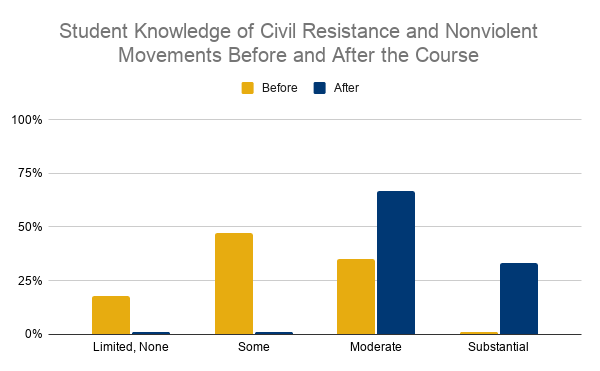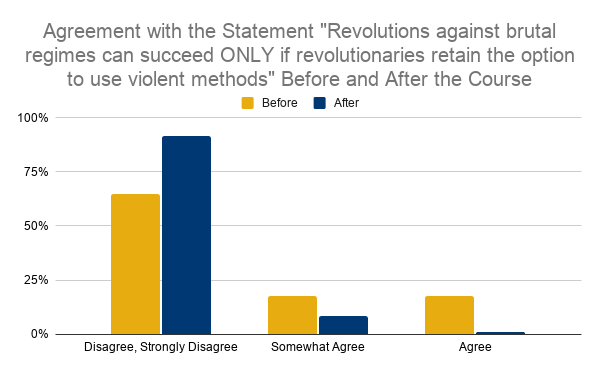Learning Impacts from the 2016 Curriculum Fellowship Program
Selected impact assessment shared by the ICNC Curriculum Fellows who taught courses on civil resistance or courses with a significant civil resistance component in the Fall 2016 and Winter/Spring 2017.
Ahmadullah Archiwal
Ahmadullah Archiwal taught “Civic Education” at Umara Khan High School in Afghanistan. Students demonstrated learning in civil resistance history and theory by changes in their agreement with statements before and after the course regarding nonviolent campaign effectiveness and misconceptions about charismatic leaders, movement spontaneity versus strategic planning, and theories of power.
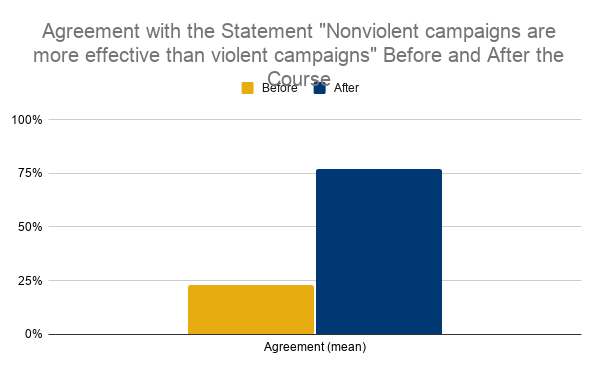

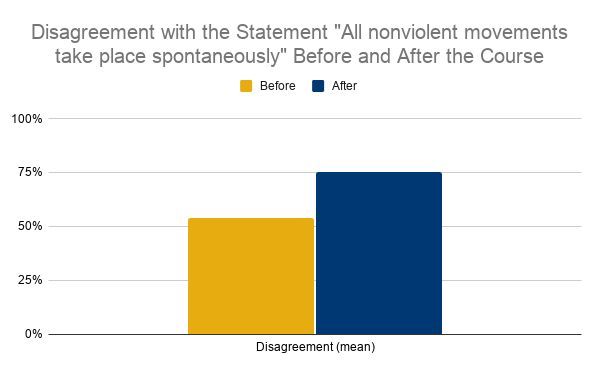

Elizabeth Cepparulo
Elizabeth “Betsy” Cepparulo taught “Nonviolent Direct Action” at the Wilmington Friends School in Delaware, United States. Students demonstrated large gains in knowledge about nonviolent direct action as a strategy for change and learned the potential of nonviolent action to be a more effective alternative to violent methods.
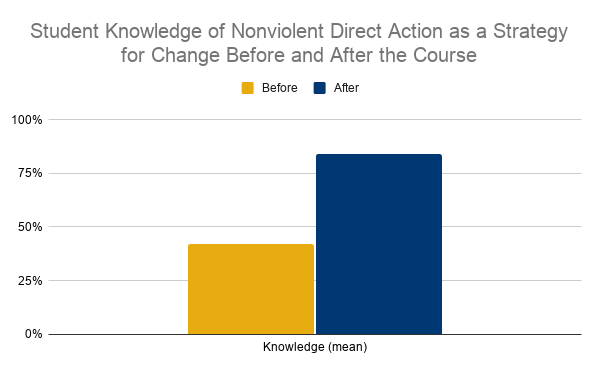

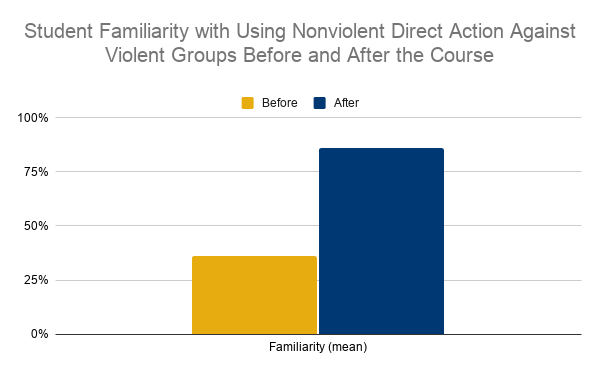
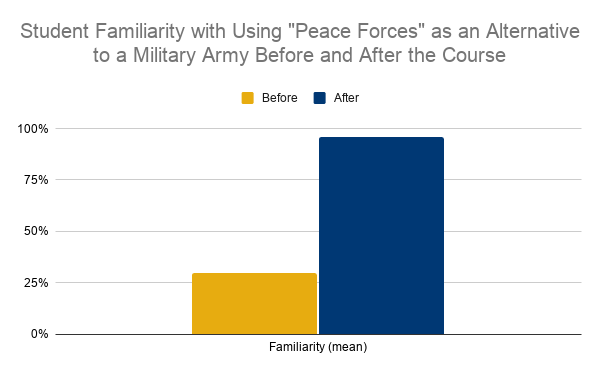
Courtney Cook
Courtney Cook taught “Introduction to Civil Resistance and Socio-Cultural Influences on Learning” at the University of Texas at Austin. The percentage of students with a limited or no knowledge of civil resistance dropped from a super-majority to 0 percent over the course of the class. Students also experienced a reversal of their emotional associations with resistance, with nearly all students moving from a negative to a positive association as a result of the course.


Regina Feldman
Regina Feldman taught “Rights and Protests: The American Civil Rights Movement and South Africa” at the Montessori High School at University Circle in Cleveland, Ohio, United States. Students demonstrated gains in their knowledge of civil resistance and nonviolent movements as well as gains in their comfort level of speaking with others about civil resistance. Students also demonstrated an increased understanding of the misconceptions surrounding civil resistance.
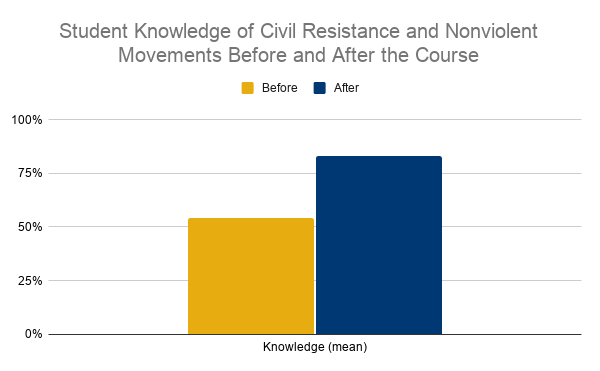
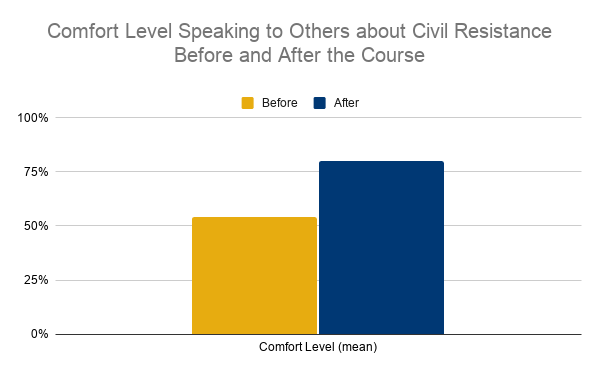
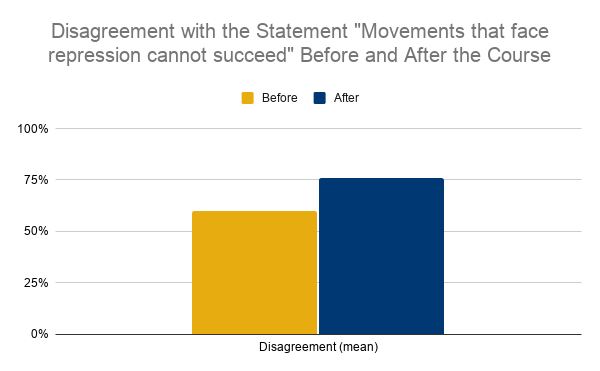
Clay Fuller
Clay Fuller taught “Dictatorships and Civil Resistance in the 21st Century” at the University of South Carolina in Columbia, South Carolina, United States. The mean knowledge of civil resistance among his students nearly doubled over the course of the class. Students also demonstrated significant gains in understanding of civil resistance strategy and tactics as well as the dynamics of backfiring the state’s acts of repression.
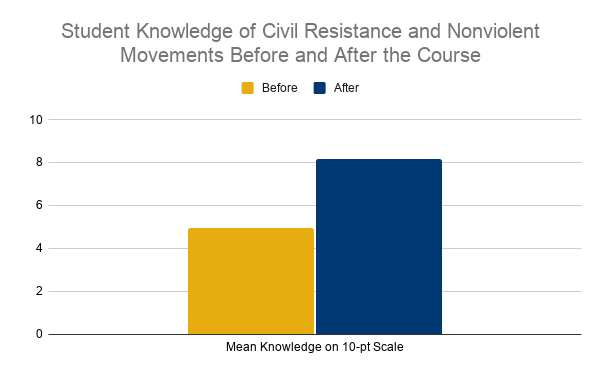
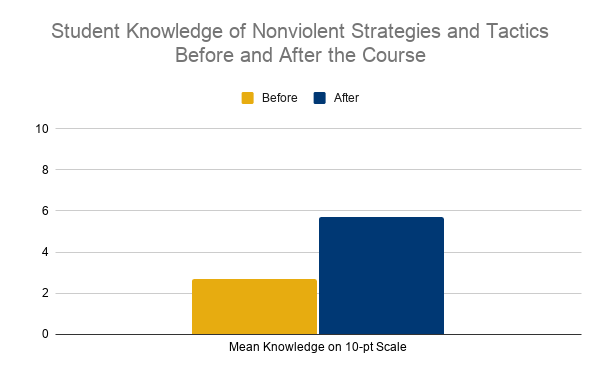
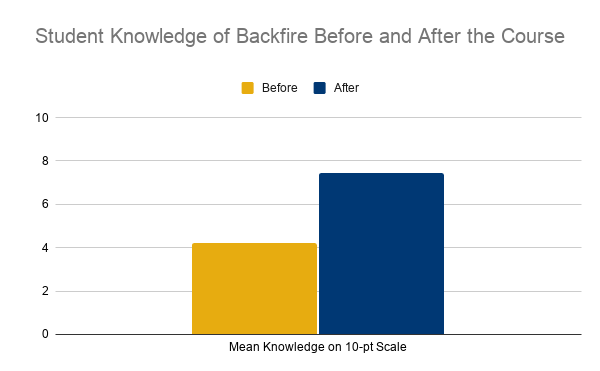
Lilit Makunts
Lilit Makunts taught “Introduction to Civil Resistance: History and Strategies of Nonviolent Struggle,” an ICNC Online Course, in Yerevan, Armenia. Students demonstrated significant increases in their general knowledge of civil resistance and in their knowledge of its history and effectiveness. 100 percent of her students came to understand that nonviolent action is more effective in affecting lasting and positive change compared to violent action.
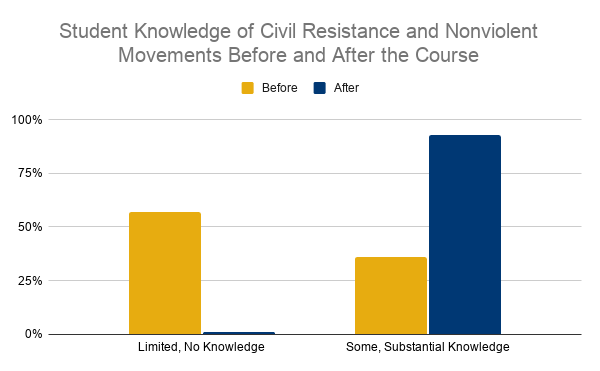
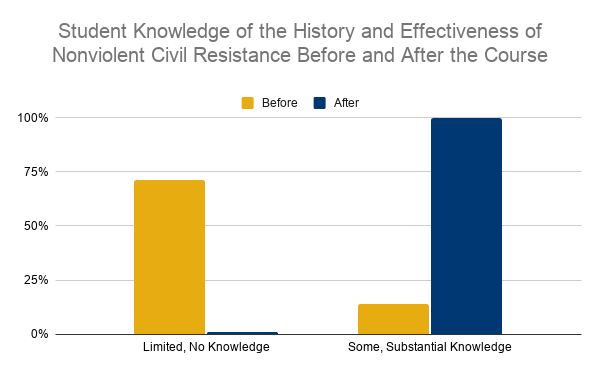
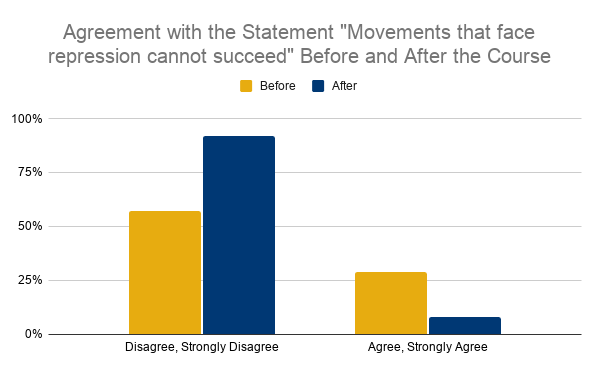
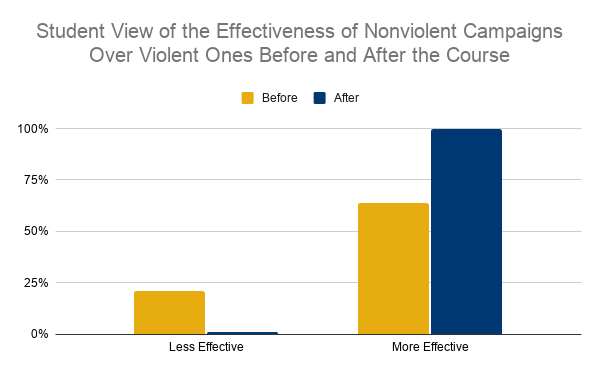
Etiene Martins
Etiene Martins taught “Strategic Nonviolent Action, Peacemaking, Community Policing” at the D. João VI Police Academy in Rio de Janeiro, Brazil. Students demonstrated significant gains in knowledge of civil resistance and nonviolent movements. Students also came to better understand that repression against a movement does not mean the movement cannot succeed. Further, students learned that retaining the option to use violent means does not make a movement more likely to succeed, demonstrated by an increase in the proportion of students who disagreed with the statement that “revolutions against brutal regimes can succeed only if revolutionaries retain the option to use violent methods” and agreement with the statement dropping to 0 percent.
